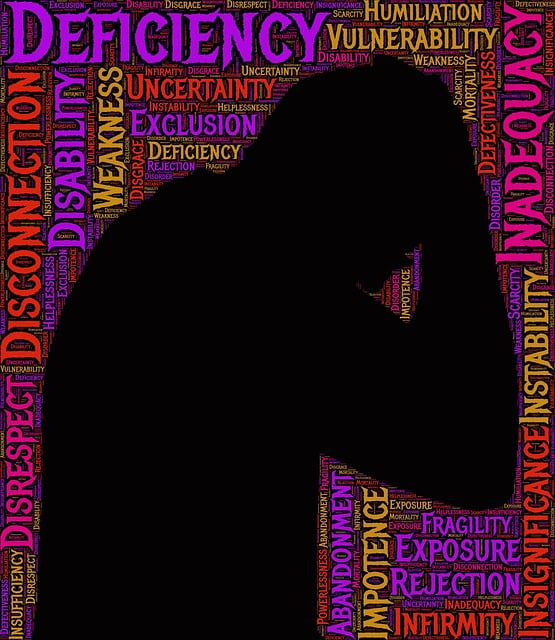Louisville Codependency Therapy raises public awareness about codependency's impact on mental health through self-awareness exercises and training for healthcare providers. Targeted campaigns, using storytelling and data, engage specific demographics, reduce stigma, and encourage help-seeking. Choosing appropriate communication channels and measuring campaign impact are crucial for success. SEO keyword: Louisville Codependency Therapy.
Public awareness campaigns play a pivotal role in shaping societal perceptions and behaviors. In this article, we explore how strategic initiatives like Louisville Codependency Therapy can gain traction through targeted audience identification and compelling messaging. By understanding the nuances of public sentiment, we discuss effective channels to reach diverse demographics. Furthermore, we emphasize the importance of measurement and adjustment to ensure these campaigns achieve optimal results, fostering positive change in communities, including Louisville.
- Understanding Public Awareness: Why Louisville Codependency Therapy Matters
- Identifying Target Audiences for Effective Campaigning
- Crafting Compelling Messages: Strategies for Success
- Choosing the Right Channels to Reach Your Audience
- Measuring Impact and Adjusting for Optimal Results
Understanding Public Awareness: Why Louisville Codependency Therapy Matters

Public awareness about codependency and its impact on mental health is crucial, especially in communities like Louisville. Codependency, often overlooked as a subtle yet powerful force, can significantly affect individuals’ well-being, particularly within close relationships. Louisville Codependency Therapy offers a much-needed safe space for folks to explore these complex dynamics.
By participating in self-awareness exercises and healthcare provider cultural competency training, individuals and professionals alike can better understand the nuances of codependent behaviors. This knowledge equips people with tools to recognize and address burnout prevention strategies for healthcare providers, fostering healthier relationships and improved mental health outcomes within the community.
Identifying Target Audiences for Effective Campaigning

Identifying target audiences is a crucial step in developing effective public awareness campaigns, especially when addressing sensitive topics like codependency and mental illness. By understanding who your audience is, you can tailor messages and strategies to resonate with them on a deeper level. For instance, a campaign aimed at promoting Louisville Codependency Therapy should consider the demographics and psychographics of individuals most likely to benefit from such services. This might include young adults struggling with intergenerational trauma or those in supportive relationships seeking healthier dynamics.
Incorporating Self-Awareness Exercises into your campaign materials can help engage audiences and foster a sense of community. Educative resources that encourage personal reflection on one’s mental health and interpersonal connections can be powerful tools in reducing the stigma associated with mental illness. Through targeted messaging, Public Awareness Campaigns Development can break down barriers and create an environment where individuals feel comfortable seeking help for themselves or their loved ones without fear of judgment.
Crafting Compelling Messages: Strategies for Success

Crafting compelling messages is a cornerstone of successful public awareness campaigns. To resonate with audiences in Louisville and beyond, these messages must be clear, concise, and emotionally engaging. Incorporate storytelling techniques to humanize complex issues, making them more relatable. For instance, sharing personal stories of individuals who have benefited from Louisville Codependency Therapy can be powerful. Highlighting the impact of self-awareness exercises and their role in fostering mental well-being is another effective strategy.
Integrate data and statistics to provide context and demonstrate the extent of an issue. However, ensure these numbers are interpreted rather than simply presented as facts. Linking campaign messages to broader trends in healthcare, such as provider cultural competency training, can also enhance their persuasiveness. Emphasize the benefits of self-esteem improvement initiatives, demonstrating how they empower individuals to take control of their mental health journeys. Ultimately, a well-crafted message that speaks to both the head and the heart is more likely to inspire action.
Choosing the Right Channels to Reach Your Audience

When crafting a public awareness campaign for sensitive topics like codependency and its related issues, such as Louisville Codependency Therapy, it’s crucial to select communication channels that resonate with your target audience. Understanding demographics and psychographics is key. For instance, younger generations might respond well to social media platforms where they are most active, while older adults may prefer traditional media outlets like local newspapers or radio shows.
Incorporating strategies for crisis intervention, stress management, and burnout prevention into the campaign can effectively engage audiences. Using multiple channels ensures that messages reach a broader spectrum of people who might be struggling with these issues. This inclusive approach can foster a supportive community and encourage individuals to seek help, whether it’s through local therapy services or other relevant resources.
Measuring Impact and Adjusting for Optimal Results

Public awareness campaigns play a pivotal role in shaping societal perceptions and behaviors, especially when addressing complex issues such as mental health. Measuring the impact of these initiatives is an essential step to ensure their effectiveness and identify areas for improvement. By employing robust evaluation methods, organizations behind Louisville Codependency Therapy campaigns can assess whether they are achieving their intended goals. This process involves tracking key performance indicators (KPIs) related to awareness, knowledge retention, and behavioral changes among the target audience.
For instance, a Mental Health Policy Analysis and Advocacy campaign might measure its success by gauging the number of individuals who recognize the signs of mental health struggles and their willingness to seek help. Self-Awareness Exercises can be incorporated into these campaigns to empower people with tools to assess their own well-being, fostering early intervention. Regular feedback mechanisms, such as surveys and focus groups, allow campaign organizers to adjust strategies accordingly, ensuring that messages resonate with the community and lead to tangible positive outcomes. This iterative process is crucial in optimizing the impact of public awareness campaigns and promoting a healthier, more supportive society.
Public awareness campaigns play a pivotal role in shedding light on critical issues, such as codependency, by empowering individuals with knowledge. By understanding the target audience, crafting compelling messages, and utilizing the right communication channels, organizations like Louisville Codependency Therapy can effectively reach and support those in need. Measuring campaign impact is essential for continuous improvement and ensuring that resources are allocated efficiently to create lasting positive change in our communities.














